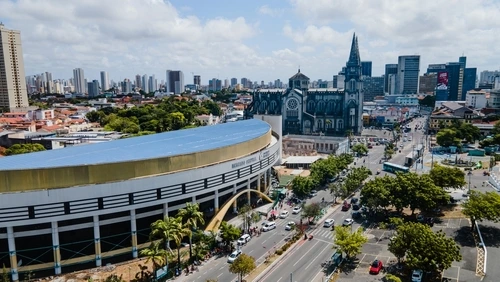
Seven cities in North and South America have been awarded the Bloomberg Philanthropies What Works Cities Certification for their use of data to improve various aspects of urban life. This year’s recipients include five South American cities, marking the first time they have achieved this recognition.

The announcement was made by Results for America, an organisation dedicated to promoting evidence-based decision-making in government. The What Works Cities Certification acknowledges cities that effectively utilise data to inform policy decisions, allocate resources, enhance services, evaluate programme effectiveness, and engage with residents.
By adopting data-informed practices, these cities are able to improve their resilience, crisis response capabilities, economic mobility, public health and overall resident satisfaction.
And the award goes to…
The seven newly certified cities reflect a growing movement of urban centres across the Americas that are investing in data-driven strategies to achieve equitable outcomes. The five South American cities recognised are Buenos Aires and Córdoba in Argentina, Fortaleza and Mogi das Cruzes in Brazil, and Montevideo in Uruguay. Joining them are Carlsbad and Charleston, the first cities in the US to be certified under the new criteria.
Rochelle Haynes, MD of What Works Cities Certification, highlighted the cities’ commitment to utilising data to improve lives, emphasising the importance of prioritising equity and resident well-being. The leaders of these cities will join an existing community of data champions within the Certification programme, allowing them to exchange innovative ideas and inspire other communities on their data-driven journeys.
James Anderson, who heads the Government Innovation programme at Bloomberg Philanthropies, praised the What Works Cities Certification for its role in raising the bar for policymakers dedicated to leveraging data to understand community needs and address resident priorities: “We’re proud to welcome these newly Certified cities into this fast-growing international community and see the use – and impact – of the What Works Cities’ standard of excellence expand and improve lives.”
The What Works Cities Certification programme has established two levels of recognition: Silver and Gold. A city that achieves 51–67% of the programme’s 43 criteria is awarded the Silver level, while 68–84% is required for Gold. The certified cities showcased their successful utilisation of data and evidence to achieve results for their residents:
- Buenos Aires, Argentina (Gold): achieved a 39% reduction in its infant mortality rate by analysing healthcare data and improving primary services for pregnant women.
- Carlsbad, US (Silver): conducted an analysis of its remote work policy, resulting in significant cost savings, reduced greenhouse gas emissions and improved traffic conditions.
- Charleston, US (Silver): launched FloodStat, a centralised data source that allows departments to track flood rescues more effectively, enhancing emergency response efforts.
- Córdoba, Argentina (Silver): saved millions of dollars through digital transformation work across 22 city government agencies.
- Fortaleza, Brazil (Gold): implemented data-informed solutions to reduce traffic fatalities by 57% over the past decade.
- Mogi das Cruzes, Brazil (Silver): utilised demographic data and evidence-based community planning to address inequalities and poverty in a vulnerable neighbourhood.
- Montevideo, Uruguay (Silver): developed transit intervention plans to improve traffic flow and reduce traffic fatalities, resulting in a significant decrease in the annual traffic fatality rate.
The updated criteria introduced in 2022 ensure that cities go beyond pockets of excellence and work towards citywide scale and maximum resident impact. Certification now requires cities to meet an internationally recognised standard in at least one of three outcomes: air pollution, high-speed broadband subscriptions, or a high-priority outcome aligned with the United Nations Sustainable Development Goals (UNSDGs).
In addition to the seven newly certified cities, several others have achieved higher certification levels or received re-certification. The seven US cities that advanced to the Gold Certification level are Chicago, Cincinnati, Henderson, San Antonio, Scottsdale, South Bend and Syracuse.
Additionally, seven US cities have been re-certified: Arlington, Cambridge, Memphis, Seattle and Washington DC at the Gold Certification level, and Bellevue and Denver at the Silver Certification level.
[Read more: Winning cities of Initiative for Cycling Infrastructure announced]






